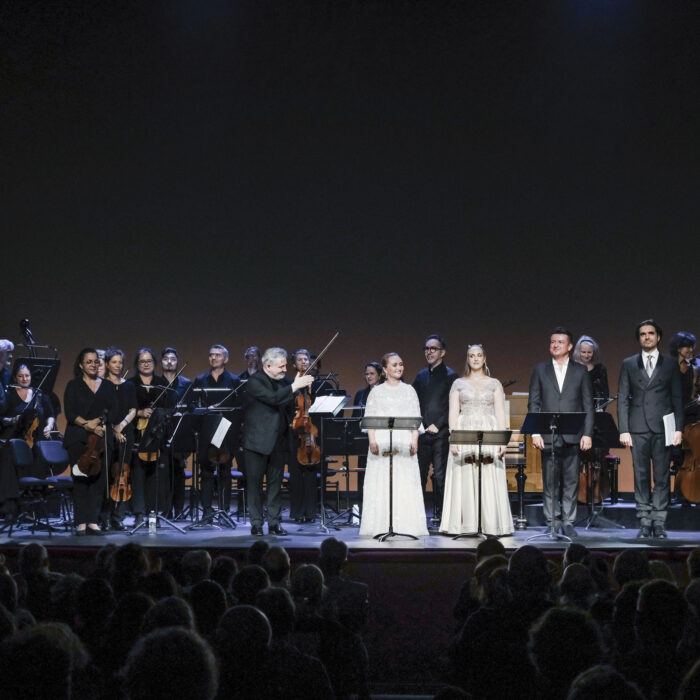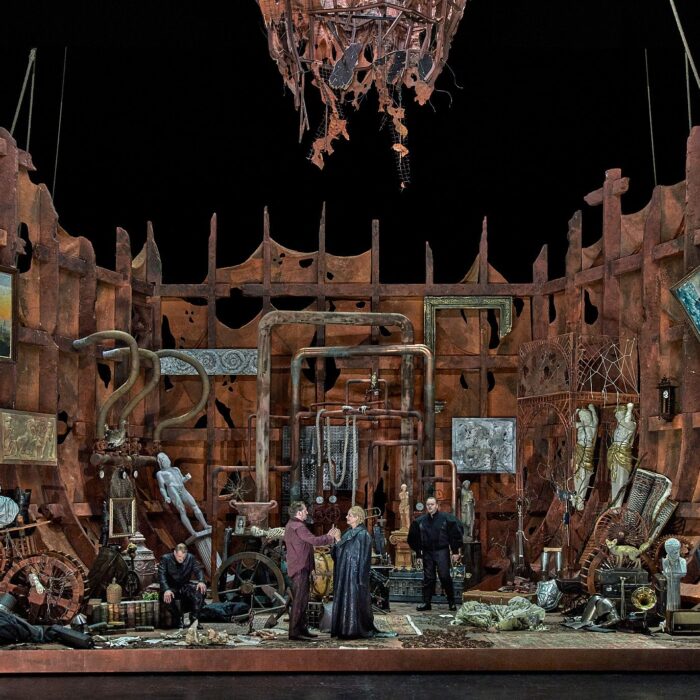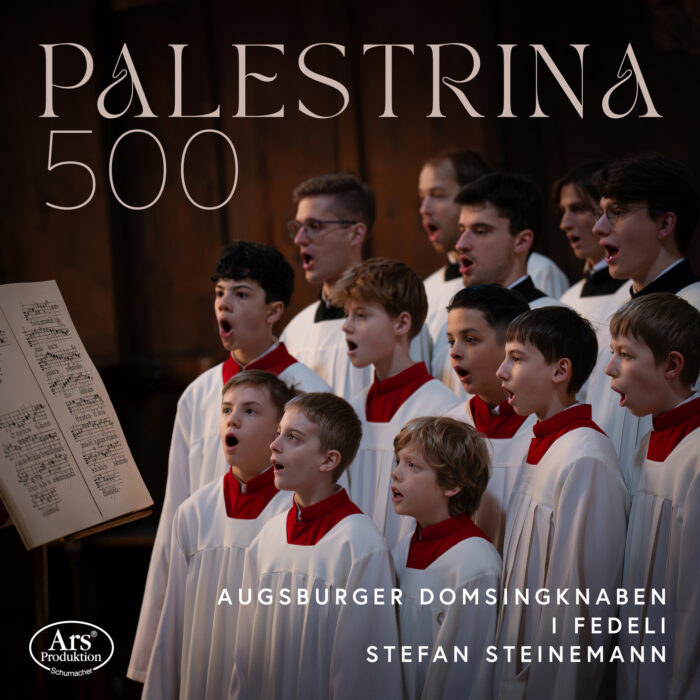
Royal Ballet & Opera 2025-26 Review: The Sicilian Vespers
A Brilliant Cast Revives a Rare Verdi Piece
By Mike Hardy(Credit: Tristram Kenton)
It’s a lot of smoke and mirrors. No, really. Director Stefan Herheim employs a combination of both smoke and mirrors on a seemingly ever-revolving, ever-evolving stage setting of grandiose balconies, monumental set pieces, and athletic ballerinas, whose inclusion is frequent enough to make the casual observer question whether this is an opera or a ballet.
In fact, with such a convoluted and difficult story to tell and stage, classical dance turns out to be a pretty effective and artistic means of its telling, not least in the opening act, where the nine-and-a-half-minute-long overture, (probably made more famous by virtue of its inclusion in the original Three Tenors concert of 1990), requires some visual expansion.
I often mused that Verdi’s personal life must have been so infused with personal, familial conflicts that he felt compelled to include them in his tales. Secret, long-lost siblings or estranged mothers and fathers frequently appear in his works. As is the case here, where the Sicilian heroine Hélène seeks revenge for her brother’s execution at the hands of the French Governor, Guy de Montfort.
Alas, she is also in love with Henri, and he with her, although NEITHER is initially cognizant of the fact that Montfort, leader of the French troops, is Henri’s father, who sired him as a consequence of his violating a Sicilian woman.
Based, to a certain degree at least, on the factual 13th-century uprising by the Sicilians against the French occupation in Sicily, the fictional juxtaposing of the French leader Montfort fathering the leader of the Sicilian rebels, son Henri, who in turn loves the woman who is seeking to exact revenge on Montfort… you get the picture. Or perhaps you don’t. Because whilst this is a fairly simple concocted tale, its telling is not easy to execute, especially when the action frequently seems at odds with the libretto. One really must be acquainted with the synopsis, at least, in order to grasp any concept of what is happening.
That said, it does all look rather splendid with Philipp Fürhofer’s sets, already alluded to, creating a genuine austere atmosphere, although Director Herheim should really have told the performers not to bang into or grasp the huge, floor-to-ceiling mirrors, lest they shake and wobble!
Other than the usual isolating spots and key lights, lighting director Anders Poll had a fairly easy gig, until right at the cessation of the opera, where the ‘massacre’ scene was alluded to by virtue of brilliantly bright lights, projected outwards from behind the set and towards the audience, producing a most ethereal sensation.
Gesine Völlm created some remarkably vibrant, if not wholly accurate, 13th-century costumes which added much to the visual splendour.
Which brings us nicely to the point where I remind everyone (as I am frequently wont to do), that opera really IS all about the music and the singing!
This opera is not performed anything like as often as other works by Verdi due to its complex history as a French grand opera, the demanding requirements of the original French text, and the often substantial lengths of its musical sections. However, the original French version, as presented here, “Les vêpres siciliennes,” has seen increased staging in the 21st century, and so it should.
It possesses some of the most exquisite music Verdi created. Redolent, at times, of some of the passages from “Il Trovatore,” especially the wonderfully angelic, soft choral passages that were deeply moving. The whole Royal Opera chorus certainly earned its crust on this occasion, having had a fairly leisurely week performing in Royal Ballet and Opera’s other current staging of “Tosca.” Here, they were used virtually in every act, and what an amazing, joyous, and impactful contribution they made, both vocally and physically.
Lebanese-Canadian soprano Joyce El-Khoury was a replacement for Marina Rebeka in the role of Sicilian noblewoman Hélène. Perhaps fazed by the fact that she was debuting this complex role, she was somewhat subdued in the early stages but rose in prominence and depth as the evening wore on. It’s not a huge voice, but what there is is undeniably beautiful. Her first act aria ’Au sein des mers’ where she rallies her Sicilian comrades to resist, was proficient enough, but she really showed the depth of her skills in her interactions with Henri in Acts two and four where she firstly agrees to accept his love if he avenges the death of her brother, and latterly, when Henri visits her in prison where she discovers the truth of Henri’s seemingly traitorous acts. Her ‘Merci, jeunes amis’ was a most accomplished performance of a difficult aria.
Ukrainian tenor Valentyn Dytiuk couldn’t have wished for a better debut. Standing in for the indisposed SeokJong Baek, he possesses a most voluminous tenor instrument. Clean and clear throughout the range with a ringing top, he lit up the stage in every scene. His interactions and duets with Hélène were convincing; his duet with Montfort in the third act, where he learns of his origins, was most compelling, superbly well-acted, and resonantly sung. His fourth act, “Ô jour de Peine,” where he expresses his shame and sorrow over his traitorous acts, was most evocative. He is an artist of true stature with a world-class voice, in my opinion, and his relative lack of renown must surely be related to his limited social media presence and lack of self-promotional attributes, tools which most current opera performers use to their full effect. I forecast great things in this tenor’s future.
Pride of place, however, on this occasion, must go to Hawaiian baritone Quinn Kelsey as Guy de Montfort, who absolutely epitomises to perfection the true definition of stentorian. Huge, resonant, and clarion, he performed one of the finest baritone roles I have heard in some time. His second act aria, ‘Au sein de la puissance’, where he sings of fatherhood, is hugely emotive, receiving much deserved applause. His interaction and duet with Henri, where he reveals he is his father, “Quand ma bonté toujours nouvelle,” was notably powerful and moving. Not only that, but he also possesses a great stage presence, acting with authority and undeniable credibility, giving off an almost perceptible aura of invincibility.
Completing the quartet of principal characters is Ildebrando D’Arcangelo as Jean Procida. A bass-baritone of sublime quality, his voice is treacle-rich throughout the registers with opulent timbre. His second act, “Palerme! O mon pays!” where he expresses joy at returning home from exile, is both exquisitely poignant and compelling.
The wealth of vocal talent wasn’t restricted just to the principal artists. Former Jette Paker artists Blaise Malaba and Michael Gibson provided sterling support. Malaba, a full-bodied bass with warm tone aplenty, performs as Le Sire de Béthune, and Gibson, a sparkling tenor, is Daniéli. Royal Opera stalwarts, great things are surely destined their way.
Conductor Speranza Scappucci was a joy to behold, superbly animated and cognizant of every note and tempo, as though she herself wrote the score. She guided, cajoled, and prompted the sublime Royal Opera orchestra with absolute authority, paying equal attention to the on-stage artists also.
“The Sicilian Vespers” is probably the most problematic, historically, of all of Verdi’s works. Although originally written in French for the Paris Opéra and was to be performed as part of the 1855 Great Exhibition, because of political complexities and sensitivities, it was rewritten and most frequently performed in Italian as “I Vespri Siciliani.” The Royal Opera House has never done so, producing only the original French version.
As Francesco Izzo, an opera coach and professor of music at the University of Southampton, said in a recent interview: “I see it in three ways. One is that it is in some ways a classic. Another is that it was lost and then recovered. And another is that it is yet to be fully recovered and understood.”
On this stage, it fully deserves to be recovered. Long may it prosper.



